As a newbie parent, you get a whole lot of advice and criticism. Looking after a helpless infant who can’t talk or sign yet can be overwhelming, exhausting and downright mind-boggling, as you try to read baby’s cues. Sometimes, you might feel like you’re operating in a “vacuum” because baby can’t really give you any feedback just yet. Are you doing it right? Or wrong? Enough? Too little? Or too much?
There are a plethora of opinions out there on any manner of parenting subjects, and it can be hard to sift through the books and articles out there to find what you need. Here are three parenting books that have been staple reading for many new parents.
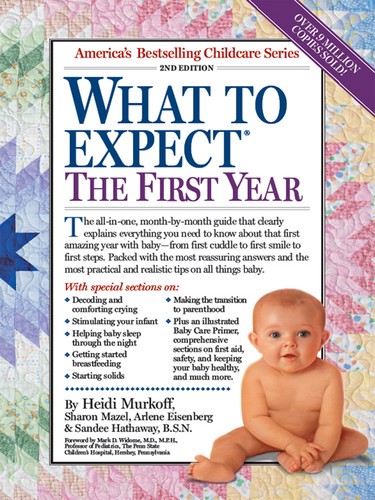
#1 What to Expect the First Year by Sandee Hathaway, Arlene Eisenberg and Heidi Murkoff
This is probably the book most would have heard of, since it’s highly popular and extremely informative. The authors cover monthly growth and development milestones, feeding and sleep solutions at various stages, and key health issues to look out for. There are practical tips for babycare (how to bath baby) and mum (when to go back to work, how to wean), and even a section for new dads (how to handle the change). Definitely a must-have for every first-time parent.
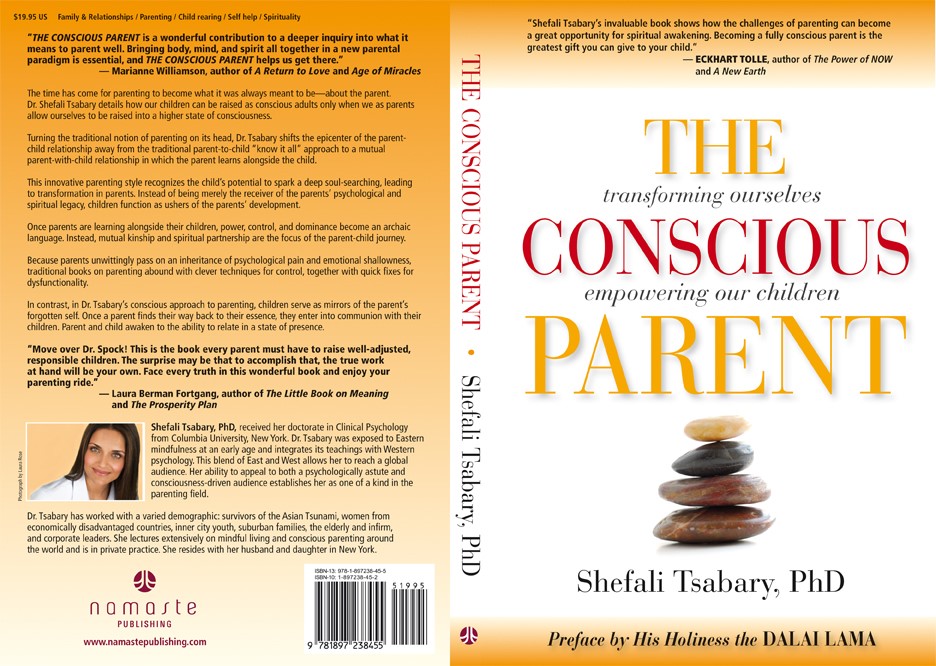
#2 The Conscious Parent by Dr. Shefali Tsabary
In an interesting twist from most parenting literature which is geared at giving you tips on managing your baby’s development, the book centres on how children function as catalysts for their parents’ own development. The authors highlight the fact that parents often unwittingly pass on an inheritance of psychological pain and emotional shallowness down to their children as they parent the only way they instinctively know how – how they were parented. Tsabary’s conscious approach to parenting proposes that children are actually “mirrors” of their parents’ forgotten selves, who they really are inside. When parents can enter into open communion with their children, shifting away from the traditional top-down approach and more towards a mutual parent-with-child relationship, they are then able to be fully present with their children. Intrigued? Read about it for yourself.
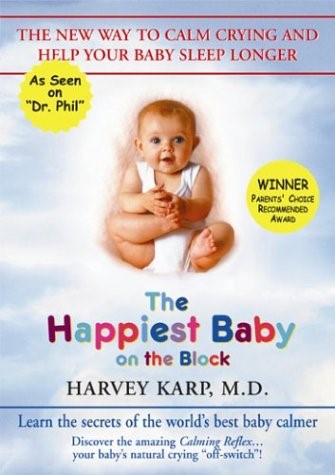
#3 The Happiest Baby on the Block by Dr. Harvey Karp
Even the most loving moms and dads sometimes feel pushed to the breaking point by their infant’s persistent cries. Newborn infants are thrust unwittingly into a world they are simply not ready for, with no initial handles to organize their faculties in any coherent manner. It must be scary to be a baby! In this book, Dr Harvey Karp shares four basic principles that he claims are crucial for understanding babies, for improving their sleep and to soothe their senses.
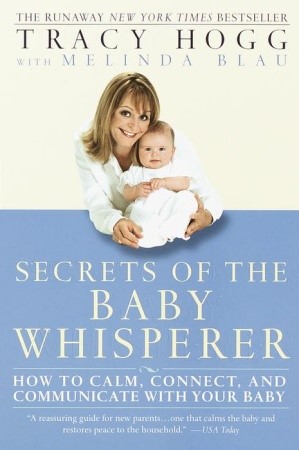
#4 Secrets of the Baby Whisperer: How to Calm, Connect and Communicate with your Baby by Tracy Hogg and Melinda Blau
The heart of Tracy’s parenting philosophy is this: Treat the baby as you would like to be treated yourself. A healthy and happy baby is a definite possibility, as you work with scheduling routines, understanding your baby’s unique cues, and learning how to engage positively with your baby’s temperament.
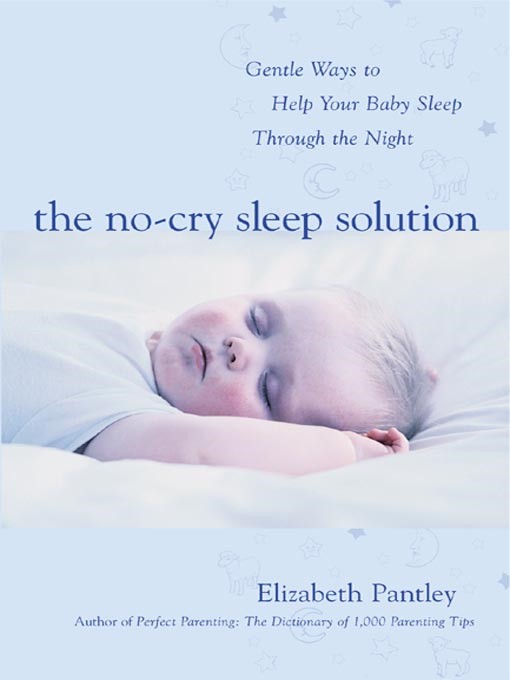
#5 The No-Cry Sleep Solution: Gentle Ways to Help Your Baby Sleep Through The Night by Elizabeth Pantley
Previously, there were two main schools of thought on encouraging babies to sleep through the night: (1) the hotly debated Ferber technique of letting the baby “cry it out,” or (2) the grin-and-bear-it solution of getting up to soothe baby at all hours, as often as necessary. Now, there’s a third option – a middle ground of sorts – that you may want to consider. The No-Cry Sleep Solution offers clear systems and ideas for helping your little one (and you) get a good night’s sleep– with no crying.
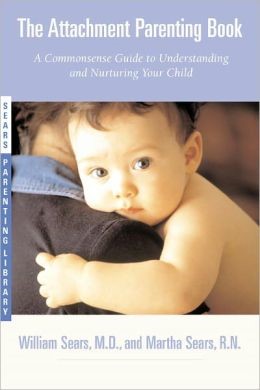
#6 The Attachment Parenting Book: A Commensense Guide to understanding and nurturing your baby
Dr. Bill and Martha Sears first coined the term “attachment parenting”, and have penned several parenting help books over the years. This all-in-one book is a practical guide towards adopting a style of parenting that encourages a strong early attachment, and which advocates parental responsiveness to babies’ dependency needs. Do note, the couple are unabashedly against any sort of baby training, especially if it does not take into account your baby’s unique needs. Instead, they posit, bonding well with baby means you get to know your child much better, and vice versa, which is what truly makes for an enjoying parenting experience.
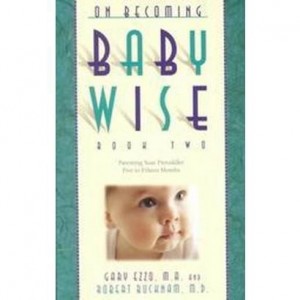
#7 On becoming Baby Wise: Give Your Infant the Gift of Nighttime Sleep by Gary Ezzo
If you want to have a happy and contented baby who sleeps soundly all through the night, so that you are not in a perpetual state of exhaustion, then this might be just what you need. By implementing an infant management plan that naturally helps infants to synchronize their feeding, awake time and nighttime sleep cycles, you’ll find yourself thriving as a parent, and your baby will be a happy and healthy one.
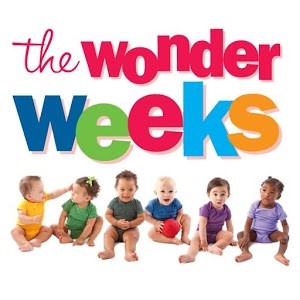
#8 The Wonder Weeks: How To Turn Your Baby’s 8 Great Fussy Phases into Magical Leaps forward by Frans X., Ph.D Plooij, et. al.
A baby’s mind is an amazing thing. Did you know that you can virtually predict when your baby is going through an intensive phase of mental development? In The Wonder Weeks, you’ll discover the specific dates during their first 14 months when all babies take eight major developmental leaps. And you’ll learn how to help your baby through the eight great “fussy phases” that mark these leaps within a week or two. Calendars, charts, and checklists help you track your baby’s progress– and finally make sense of his fussy behavior. Definitely an indispensable book for your child’s first year.
Each author does come from a different perspective, with a certain philosophy about parenting. You might not agree with everything they say. Before whipping out your card to purchase the whole list online, have a browse through them at your nearest library, so that you know the angle the author is taking and decide from there.
Written by Dorothea Chow






